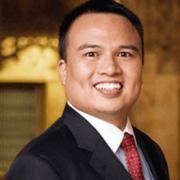My father was just a little boy growing up in Bataan during World War II. He believed his life and that of his brothers were spared by the Japanese only because they were too small to be viewed as threats to the soldiers. Eventually, brave Filipino and American soldiers fought side-by-side to liberate the country from the cruel Japanese occupation.
For too many years, the US government has failed to deliver promises and benefits to those brave Filipino WWII veterans. But, finally, after tireless efforts by Filipino WWII veterans and their advocates, a significant accomplishment is within reach. The estimated remaining 6000 Filipino WWII veterans who became US citizens may reunite with their sons and daughters inside the United States.
Based upon a report issued by the Obama Administration’s Visa Modernization Task Force, the White House announced its recommendation that the US Department of Homeland Security implement a humanitarian parole program benefitting Filipino WWII veteran families. This program would allow the sons and daughters of certain Filipino WWII veterans to reside and work within the United States, while waiting for their immigrant visa and US lawful permanent resident (“green card”) processes to be completed.
If DHS adopts this White House recommendation—which it is expected to do—DHS could create a program similar to other existing humanitarian parole programs, such as the Cuban Family Reunification Parole Program and the Haitian Family Reunification Parole Program.
Those programs require that the petitioner—in our case, the Filipino WWII veteran—have an I-130 family-based immigrant visa petition filed for the beneficiary son or daughter intending to apply for humanitarian parole. Also, the priority date for the son or daughter’s immigrant visa must not be currently available.
These humanitarian parole programs also require petitioners to wait to receive an actual invitation notice from the National Visa Center before any beneficiary (son/daughter) may submit an application for humanitarian parole. It is unclear whether DHS will institute a similar invitation process for Filipino WWII veteran families. Because DHS does not know which veterans actually became US citizens, it may be impractical to require such an invitation process. Instead it would be more advisable to simply allow all families to apply, and prove their eligibility.
Irrespective of the DHS process details yet to be finalized, certainly, the heart of any successful humanitarian parole application will rely upon the family’s ability to prove eligibility, based upon either the humanitarian considerations, or the US national interest. Similar applications, successful in the past, have focused upon a variety of criteria including, but not limited to, the US policy of promoting family unity, and the family’s financial, emotional and medical hardship.
The White House recommendation to grant humanitarian parole to reunite Filipino WWII veterans with their families inside the United States is long overdue. But now that the Obama Administration has stated its policy and program recommendation, DHS must take action to grant these benefits to our kababayans immediately.
***
Attorney Rio Guerrero is a proud second-generation Filipino American and the recipient of a coveted NAPABA “Best Lawyers” National Award in recognition of his success over the past 16 years, representing clients in all fifty United States and throughout the world with their US immigration matters. He is a partner with the New York-based immigration law firm of Guerrero Yee LLP. He is also an Adjunct Immigration Law Professor at the CUNY School of Professional Studies in Manhattan. Atty. Guerrero is the President-Elect of the National Filipino American Lawyers Association (NFALA). You may contact him at rio@guerreroyee.com or (646)545-5000.







